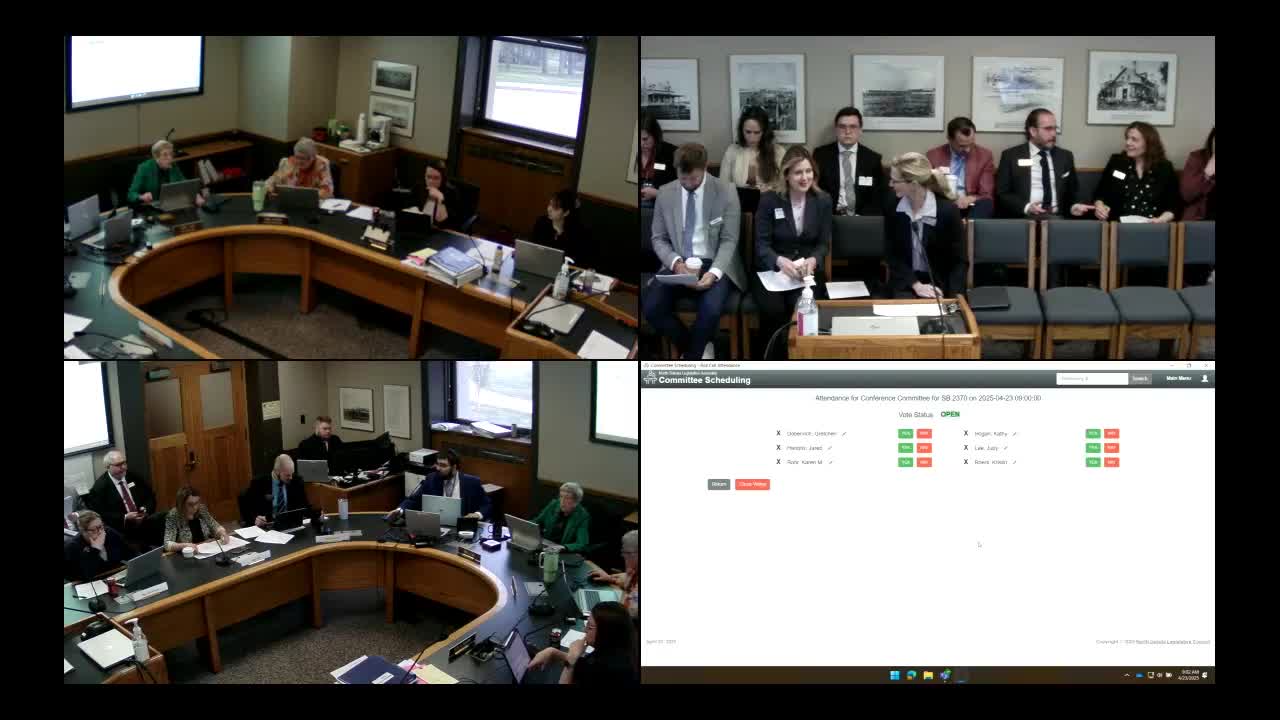Conference committee debates 340B transparency reporting in Senate Bill 2370
Get AI-powered insights, summaries, and transcripts
Subscribe
Summary
Lawmakers at a conference committee hearing discussed proposed reporting requirements tied to the federal 340B drug discount program in Senate Bill 2370, focusing on germaneness, data use, confidentiality and enforcement; no final action was taken and members asked for more study and another meeting.
A conference committee considering Senate Bill 2370 met to review proposed state reporting requirements related to the federal 340B drug discount program and its transparency, and members raised questions about whether the bill is germane to the vehicle, whether the state will gain useful information, and how confidentiality and civil penalties would be handled.
The committee spent the session examining whether adding reporting language tied to 340B to SB 2370 is appropriate and effective. Several members said hospitals already report detailed 340B information to the federal Health Resources and Services Administration (HRSA), and that pharmacy benefit managers and drug manufacturers have successfully withheld proprietary data from state requests in prior actions. Representative Hendricks said, "you don't know what you're gonna do with the data until you have it," and described how other states have used such reporting to inform reforms and market actors.
Opponents and some members questioned the bill's germaneness to the Senate vehicle and whether the state could influence a federally administered program. One committee member summarized three core concerns: lack of germaneness, redundancy with federal HRSA reporting, and the likelihood that PBMs and manufacturers would claim proprietary protections. Several members pointed to a fiscal note and the insurance commissioner's anticipated need to hire consultants to clean and analyze any collected data.
Supporters said transparency can enable market actors and consumer groups to identify problems and that other states have modified their approaches after initial implementation. Committee discussion cited state examples — Minnesota, Vermont and Oregon — where reporting led to program tweaks or declines in certain reporting metrics, and a committee member noted national figures provided in testimony: $66,000,000,000 in 340B drug purchases in 2023, with $51,000,000,000 (78%) attributed to disproportionate share hospitals. The committee also discussed the role of 340B savings in supporting rural and critical access hospitals.
Industry representative Don Larsen told the committee that much information is already publicly available and that stakeholders should help define what additional data the state needs. "There is a lot of data that's being out there," Larsen said, urging clarity about which data the state seeks and what it would use the information for.
Members also flagged the bill's civil-penalty provisions and the scale of the regulatory infrastructure the draft would create. Senator Hogan said the proposal "created great anxiety because of those potential changes," and several members recommended additional study and clearer language about how the collected data would be used, who would own the process and which entities would be required to report.
The committee did not vote on amendments or final language. Members agreed to schedule another meeting to consider amendment options and study materials; the hearing on SB 2370 was adjourned without formal action.
